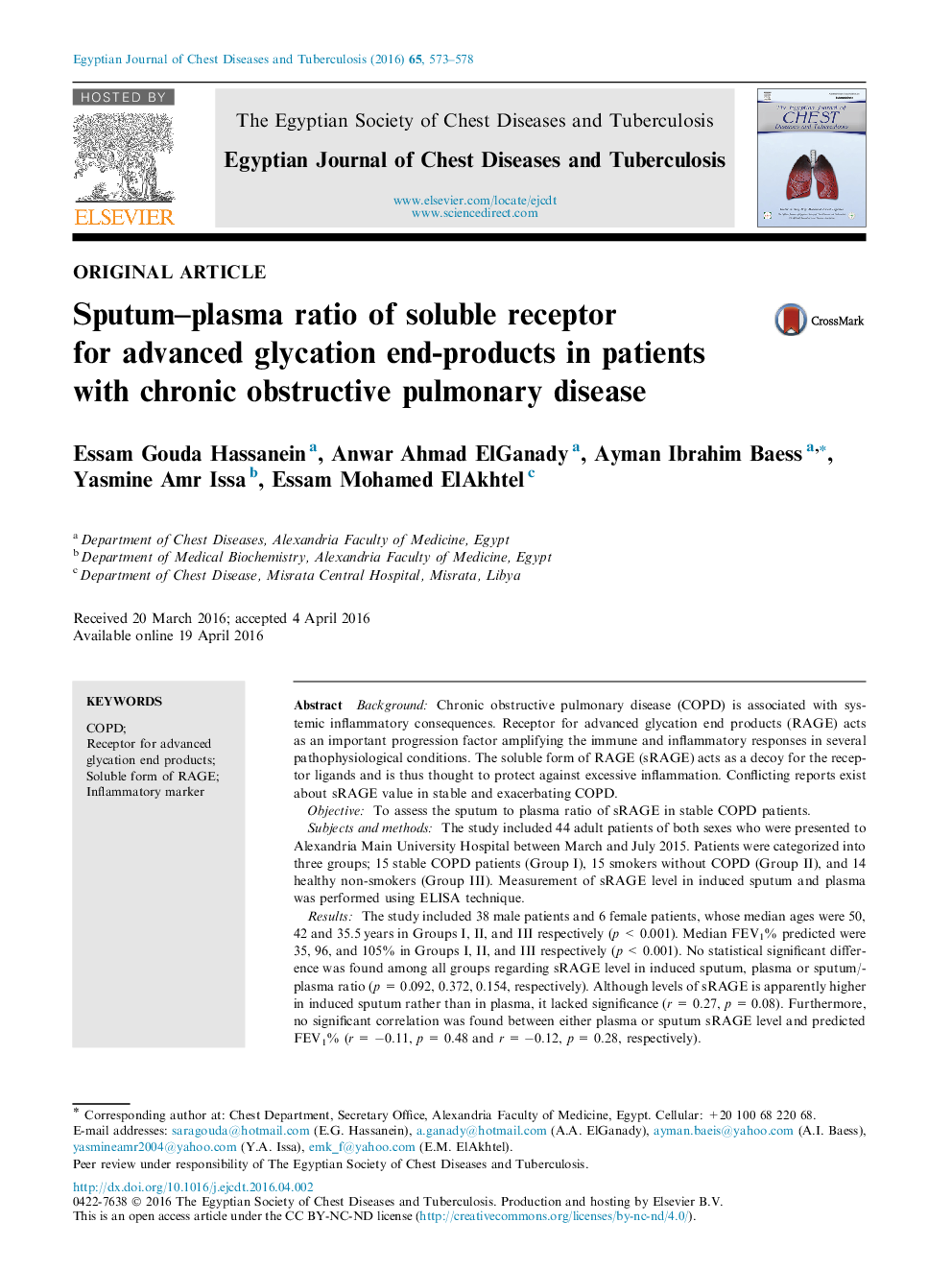| Article ID | Journal | Published Year | Pages | File Type |
|---|---|---|---|---|
| 3399816 | Egyptian Journal of Chest Diseases and Tuberculosis | 2016 | 6 Pages |
BackgroundChronic obstructive pulmonary disease (COPD) is associated with systemic inflammatory consequences. Receptor for advanced glycation end products (RAGE) acts as an important progression factor amplifying the immune and inflammatory responses in several pathophysiological conditions. The soluble form of RAGE (sRAGE) acts as a decoy for the receptor ligands and is thus thought to protect against excessive inflammation. Conflicting reports exist about sRAGE value in stable and exacerbating COPD.ObjectiveTo assess the sputum to plasma ratio of sRAGE in stable COPD patients.Subjects and methodsThe study included 44 adult patients of both sexes who were presented to Alexandria Main University Hospital between March and July 2015. Patients were categorized into three groups; 15 stable COPD patients (Group I), 15 smokers without COPD (Group II), and 14 healthy non-smokers (Group III). Measurement of sRAGE level in induced sputum and plasma was performed using ELISA technique.ResultsThe study included 38 male patients and 6 female patients, whose median ages were 50, 42 and 35.5 years in Groups I, II, and III respectively (p < 0.001). Median FEV1% predicted were 35, 96, and 105% in Groups I, II, and III respectively (p < 0.001). No statistical significant difference was found among all groups regarding sRAGE level in induced sputum, plasma or sputum/plasma ratio (p = 0.092, 0.372, 0.154, respectively). Although levels of sRAGE is apparently higher in induced sputum rather than in plasma, it lacked significance (r = 0.27, p = 0.08). Furthermore, no significant correlation was found between either plasma or sputum sRAGE level and predicted FEV1% (r = −0.11, p = 0.48 and r = −0.12, p = 0.28, respectively).ConclusionssRAGE level either in induced sputum, plasma or sputum plasma ratio is not significantly different between stable COPD patients, smokers and healthy controls. Thus, sRAGE cannot be considered as a marker of either diagnosis or severity of COPD.
